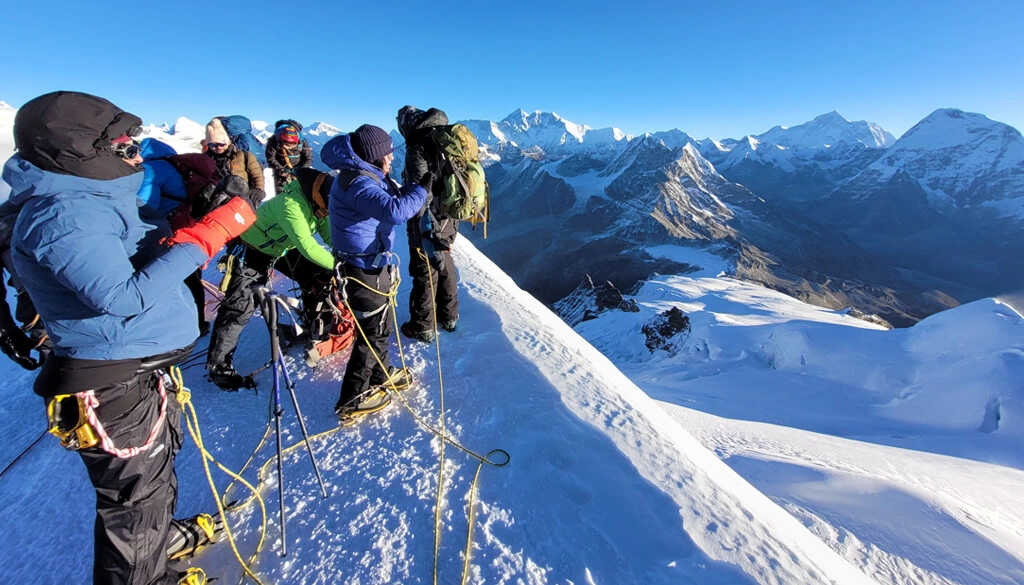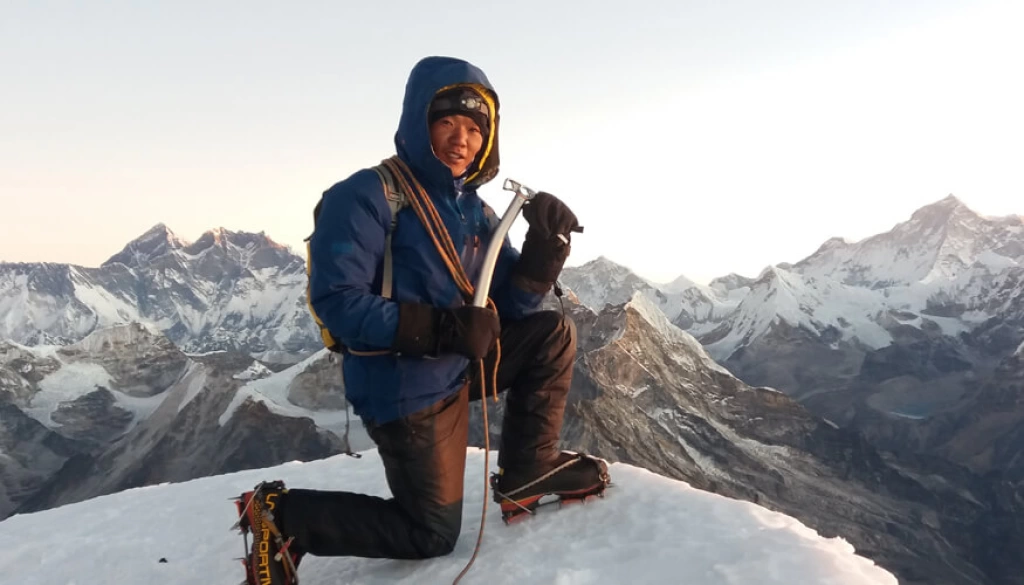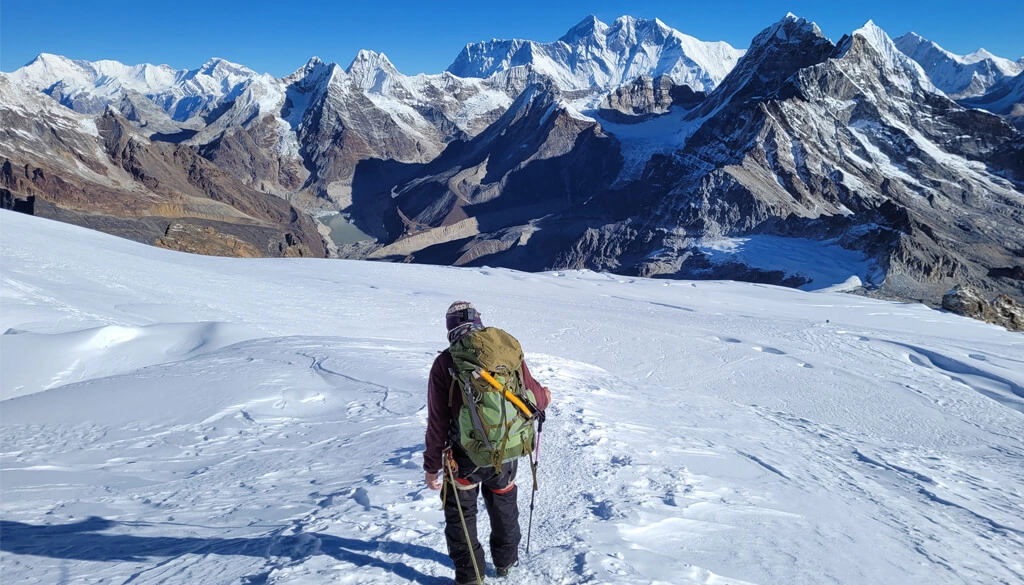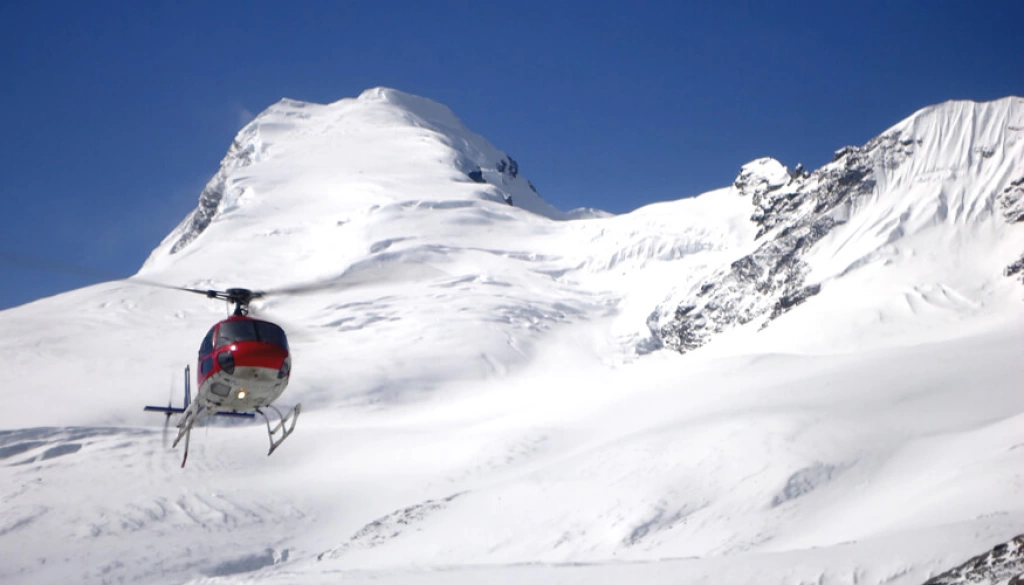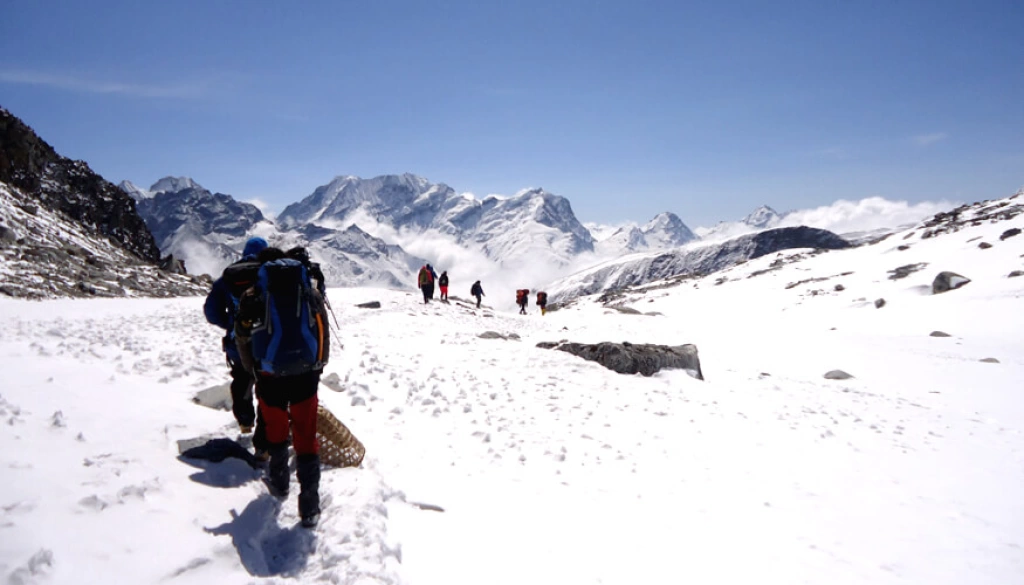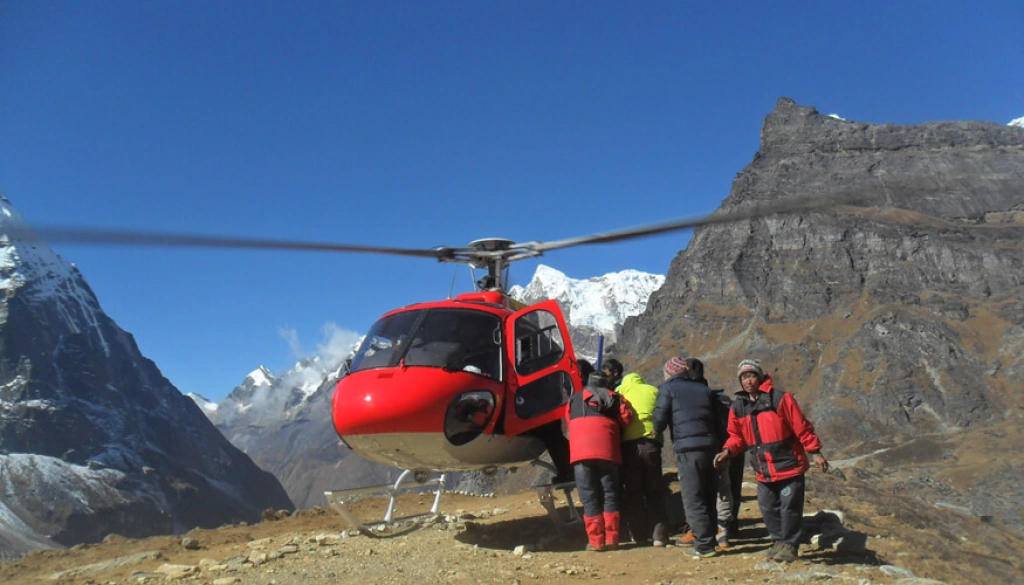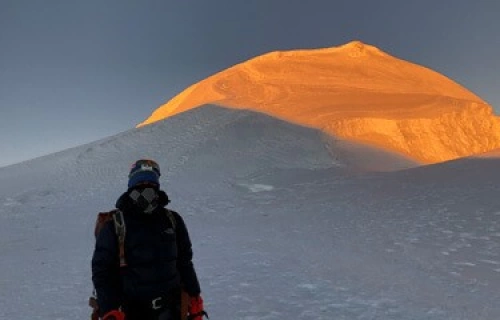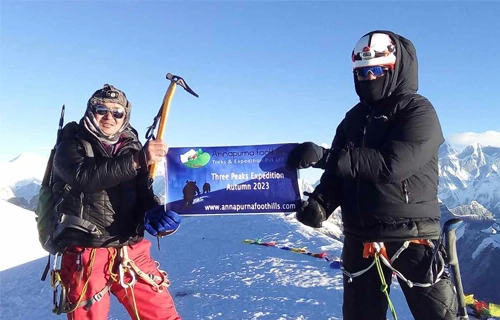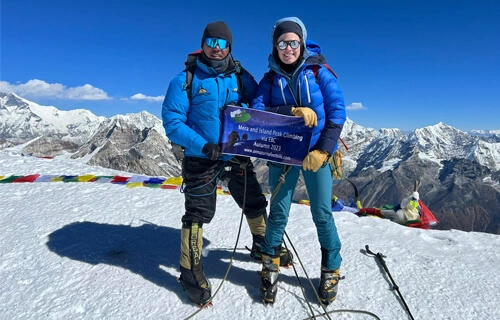Useful Info
Tipping your Guides and Porters for Mera Peak Climbing
Tipping is a common practice in the hospitality industry, especially in the trekking and climbing field. It is a way to show appreciation for the services provided by guides and porters. It is important to acknowledge their hard work, dedication, and assistance throughout your Mera Peak expedition. Tipping is not mandatory, but it is customary and significantly appreciated. You can visit our Tips for Tipping page for detailed information.
Food, Water, and Accommodation during Mera Peak Climbing
Tea houses or lodges play a crucial role in providing accommodation and meals to trekkers and climbers in most of the trekking regions in Nepal.
Food
During Mera Peak climbing, meals consisting of a diet rich in carbohydrates are mostly served. This is because our bodies do not process fat and protein efficiently at higher altitudes. The meals are also designed to compensate for the increase in caloric need that high-altitude climbing involves. We try to make meals and breakfasts diverse and as standard as possible.
Usually, you will have your breakfast and dinner at the same lodge where you will be staying. Lunch will be served at tea houses or small lodges along the trail. Typical meals are dal Bhat, rice, noodles, pasta, hash brown, potatoes, etc. with different styles (fried with veggies, eggs, veggies & eggs, plain, mixed). At tea houses, checking with your guide to get the most up-to-date information on food options and availability will be a wise thing to do.
As you ascend to higher altitudes, the variety of food becomes more limited but fresh and healthy. At base camp and higher camps, our private climbing cook will prepare fresh and healthy breakfast, lunch, and dinners to all the team members with tea or coffee. With advance notice, we can arrange diets like vegetarian, vegan, gluten-free, etc. to members preferring so.
Water
It is equally important to prioritize your health and hydration during Mera Peak climbing. It is essential to confirm you have access to safe drinking water throughout your expedition. From Day 3 to Khare village (the last settlement) at an elevation of 5,045 meters, drinking water will be accessible and available in the teahouses where you will be staying, either from taps, boiled water, or bottled water. We strongly suggest our guests to be cautious of using untreated water from natural sources and tap as well as it may contain harmful microorganisms that can cause waterborne infections. We highly recommend drinking boiled water, or bottled water after using water purification tablets or steripen or portable water filters.
While staying in tented camps during the climb, our supporting staff will carry and bring it all the way up to the tents. Then, we provide drinking water to our climbing members only after treating the water (boiled, sterilized, or boiled and sterilized) ensuring proper usage and effectiveness.
Accommodation
Most of the tea houses during the Mera Peak expedition will be owned, run, and managed by Sherpa families (family-run lodges). Most of the tea houses throughout your trek (up to Khare) will have a comfortable twin-sharing room for trekkers. The rooms are simple but clean. A room usually has two single beds with a foam mattress and pillow. The toilet could be shared or attached. A blanket is provided but many prefer to bring their own sleeping bag.
In the peak climbing season, it might be difficult to find better accommodation due to the inflow of a large number of trekkers/climbers. In that case, we reserve rooms for our guests in advance so that they can have a nice and warm room at the end of a long trekking day. A sense of adventure will be a great advantage to help you adjust to some tea houses/lodges which are more basic than others.
Guides and Porters for Mera Peak Climbing
Guides and porters play a critical role in providing support, know-how, and assistance throughout the climb. The number of guides and porters you will need for your Mera Peak Climbing will be determined by the size of your group. Climbing Mera Peak undoubtedly requires a trustworthy team of guides and porters to guarantee a safe and successful expedition. With Annapurna Foothills, we assure everything will be well taken care of.
A typical day on Mera Peak Climbing
A typical day on Mera Peak climbing begins with a wake-up call at 6:00 AM. After freshening up, climbers gather their climbing gear and pack their backpacks with essentials like water, snacks, extra clothing layers, and personal items. They then enjoy a hearty breakfast to fuel up for the day ahead.
The trek for the day usually begins around 7:00 AM. The trail may vary depending on the specific route chosen, but it typically involves ascending and descending through rugged terrain, and forests, and crossing suspension bridges over rivers. After walking for a few hours, climbers stop for lunch. This lunch break provides an opportunity to rest, refuel, and take in the beautiful surroundings.
After lunch, climbers continue their journey to reach the destination chosen for the day to stay overnight. Upon reaching the designated destination, climbers settle into their rooms or tents and take some time to rest and relax. As the sun sets (around 6:30 PM), dinner is served in the dining hall. The meals typically consist of a variety of dishes, including carbohydrates, proteins, and vegetables, to replenish energy reserves.
After dinner, the guide will conduct a briefing session, discussing the next day's plan, any challenges, safety precautions, and general mountaineering tips. Climbers then have free time to rest, chat, read, or engage in activities before going to bed. It's important to get enough rest to aid in acclimatization and prepare for the challenges of the next day.
As climbers progress towards the higher altitudes of Mera Peak, additional rest days (at Thangnak and Khare) and altitude acclimatization are usually built into the itinerary to minimize the risk of altitude sickness and ensure a successful summit attempt.
Mera Peak Climbing Packing List:
“There's no such thing as bad weather, only unsuitable clothing.” Alfred Wainwright
Are you planning your dream trip to the Himalaya of Nepal? Make sure you have packed well for your hiking, trekking and climbing experiences in Nepal. The time period of your visit also determines your packing list. The best trekking seasons for beginning your Mera Peak Climbing are spring and autumn. During these seasons, maximum flow of trekkers can be witnessed. Weather during spring (March – May) and autumn (September – November) are likely to be mild with clear blue sky and outstanding mountain views. But nights can get freezing cold at higher elevation. So, packing appropriate clothing, gear, and equipments for your Mera Peak Expedition is a must for lifetime memorable trekking and climbing experience in Everest region of Nepal.
A strategically way of packing will be keeping in mind that your stuffs will be packed in two bags. One will be the daypack that you carry every day on your trek. Pack your daypack as light as possible by carrying only the essentials so that you can relish your moments in wilderness freely. Pack anything you may need each day during your hike in your daypack. Other bag will be your duffle bag which will be carried by your Porter from the very beginning of your trek till the end.
Upper Body:
- Warm beanie hat
- Tubular Headwear (buff)
- Sun Hat or Cap (cap and buff all fit under your hood)
- Polarized Sunglasses with UV protection
- Headlamp (Black Diamond / Petzl) with spare batteries
- Sunscreen with factor 50+
- Upper Body (Core body):
- 3 Light and trekking weight thermal tops
- 3 T-shirts or cool-max trekking shirts
- 1 Fleece Jacket or pull over (Merino, soft shell)
- 1 Waterproof shell jacket with hood (lightweight, breathable)
- 1 Down Jacket
Lower Body:
- 2 Thermal base layers (merino or polartec power dry)
- 2 Pairs trekking pants, preferably that zip on/off at the knees so they double as shorts.
- 1 Heavy weight hiking trousers (wind proof soft shell for warmth at higher altitude)
- 1 Waterproof/ Rain pants
- 2 Light Hiking shorts
- 2 Fleece Pants
- 4 Under wears (merino)
Hands:
- 1 Lightweight gloves or liner gloves
- 1 Pair shell gloves (Gore-Tex)
- 1 Waterproof outer glove
Feet:
- 3 Warm Trekking socks (smart wool)
- 3 Pairs of liner socks
- 2 Pairs of thick/ warm socks
- 2 Thick wool socks to wear at night in lodges
- Trekking Boots (waterproof, ankle support with rigid sole)
- Lightweight Rubber Shoes / Trainers / Trail Runner to wear at the Tea Houses
Accessories:
- 1 Daypack (approximately 2500 to 3000 cubic inches) 40 - 50 Liters
- 2 Water bottle or camel bag, 1-liter (one with an insulated cover is recommended)
- Large duffle bag (and a lock as the porters will carry this)
- A pair of adjustable Trekking Pole
- Camera with extra battery
- Sleeping bag (- 15 C depending upon trips)
- Sleeping Bag liner
- Ear Plugs
- Portable Solar Charger
- Smart Trekking Watch
Personal First Aid Kit:
Please do note that our trekking guides will be too carrying the first aid kit with them especially for the guests and the entire team as a whole. Still, we suggest the following items to be carried with you while trekking in the Himalaya of Nepal.
- Personal Medication
- Diarrhea Stopper (e.g. Imodium)
- Paracetamol Tablets
- Small Swiss Army knife (which has knife, scissors and tweezers)
- Diamox for altitude (consult your doctor about this)
- Water Purification tablets or drops
- Blister kit / Zinc Tape
- Hand Sanitizer
- Dressing Gauze
- Antibiotic Cream
